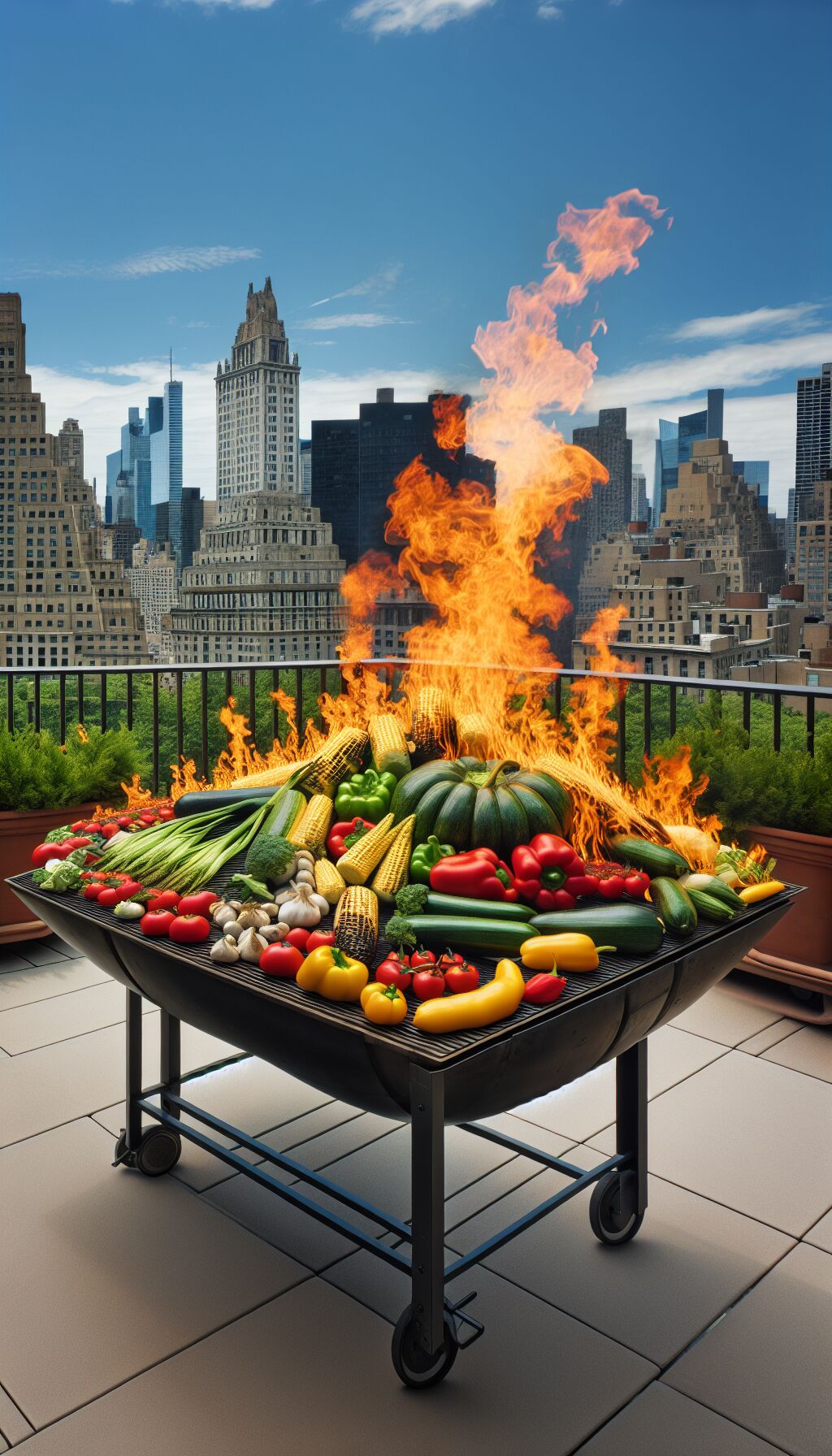New York Considers Emissions Restrictions on Char Broilers Amid Climate Concerns
In an effort to address climate change and improve public health, New York officials are contemplating a controversial new regulation targeting a staple of city dining: commercial char broilers. The proposed emissions restrictions aim to significantly reduce air pollution, potentially preventing hundreds of premature deaths linked to particulate matter, proponents argue.
Emissions Standards for Commercial Char Broilers
According to the New York Department of Environmental Protection (DEP), the new rule would establish strict emissions standards specifically for under-fire commercial char broilers—a popular cooking method that imparts a distinctive smoky flavor to meats. If enacted, the regulation would require restaurants operating char broilers installed after May 2016 to reduce emissions from the equipment by a staggering 75%.
Furthermore, under the proposed rule, restaurants that char-broil more than 875 pounds of meat per week could face operational restrictions unless they install an approved emissions control device. This measure raises significant concerns among many restaurant owners in New York City, who rely on this traditional cooking method to serve their customers.
Potential Public Health Benefits
In their rationale for the new regulation, state officials cited a study conducted by the Department of Health and Mental Hygiene that linked particulate matter (PM) emissions from cooking appliances, such as char broilers, to premature deaths. The proposed rule claims that the widespread implementation of emissions control technology could lead to a reduction in PM levels, potentially averting nearly 350 premature deaths each year in New York City alone.
The study indicated that char broilers contribute significantly to the city’s PM pollution, releasing an estimated 1,400 tons of PM annually across the five boroughs. These emissions were found to account for over 12% of PM-related premature deaths documented between 2005 and 2007, underscoring the urgent need for action, according to state health officials.
Restaurant Industry Pushback
Despite the purported health benefits, the proposed regulations have ignited a wave of criticism from local restaurant owners. Alan Rosen, the owner of Juniors, a prominent restaurant in NYC that utilizes char broiling, expressed his frustration with the proposal. “The fact that this is even an issue is a nothingburger,” he commented to the New York Post. “People are getting knifed in the subway, and they’re worried about char broilers? We’ve been doing this for almost 75 years. It’s absolutely ridiculous.”
Rosen’s sentiments reflect a broader sentiment within the culinary community, as many restaurateurs express concern that the rule could impose undue burdens on their businesses. With limited options for compliance and a lack of accessible emissions control technology, many in the industry fear they may be forced to cease operating their char broilers altogether.
Challenges in Compliance
The DEP acknowledges the complexities involved in enforcing the proposed emissions reductions. The agency noted the challenges restaurant owners might face in demonstrating the necessary 75% PM reduction, particularly if they lack access to an Environmental Protection Agency (EPA) Method 5 certified emissions control device. This stipulation adds another layer of difficulty for restaurant operators who may already be navigating tight profit margins.
In light of these challenges, the proposal also includes plans for a public hearing on January 29, 2025, where stakeholders, including restaurant owners, environmental advocates, and health officials, will be invited to voice their opinions and concerns regarding the regulation.
The Bigger Picture: Climate Action and Public Health
This proposed rule forms part of a broader climate strategy in New York, aimed at reducing air pollution and mitigating the impacts of climate change. As cities across the globe grapple with the dual challenges of environmental sustainability and public health, measures such as these are becoming increasingly common.
While the goals of such regulations are clear—reducing emissions, improving air quality, and ultimately saving lives—the pushback from the restaurant sector underscores the delicate balance policymakers must strike between necessary environmental actions and supporting local economic activity. The outcome of the January hearing could influence the final form of this regulation, potentially leading to compromises that address both public health and the economic viability of NYC restaurants.
Conclusion
As New York City prepares for a heated debate over the proposed char broiler emission restrictions, the stakes are high for both public health advocates and the restaurant industry. With health studies linking cooking emissions to significant health risks, the proposed changes reflect a growing recognition of the importance of air quality in urban settings. Yet, for many restaurant owners, the thought of losing a cherished cooking method poses a very real threat to their livelihoods. As the city navigates this critical issue, the balance between climate action and economic vitality will be crucial in shaping the future of the city’s dining scene.
